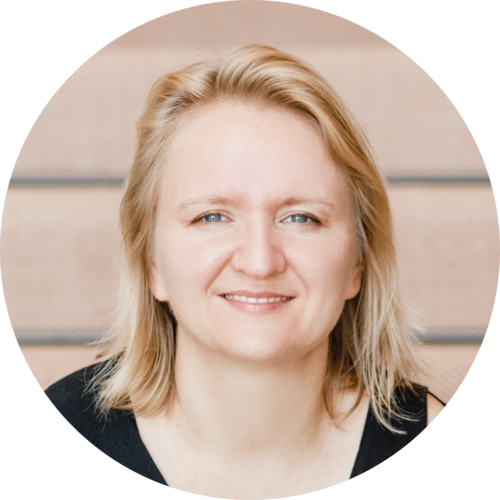
MEA Finance: Having learned lessons from the pandemic, what do you think is the most important in digitization for financial institutions?
Maria: The current collapse is changing not just the contents of our shopping carts, but also the way we pay for our purchases. Before the pandemic, choosing between cash, cards and mobile wallets was a spontaneous decision or a matter of personal preference. But now, personal health concerns are overruling other considerations. New habits relating to safety and hygiene during the payment process are likely to remain for a long time. Among consumers surveyed in May 2020 by E&Y analysts, 51% agreed that “the way they shop will fundamentally change”.
Many payment providers seem to underestimate the risk of losing customer loyalty, instead focusing on maintaining the status quo and rearranging their day-to-day operations. At the same time, some agile banks and fintechs have sped up their digitalization and succeeded in protecting their market share – even onboarding new customers. The most attractive payment offerings are usually those that combine digital card and contactless payment technologies, with value-added services on top such as instant online loans, deposits and multi-currency operations.
We believe that the ongoing changes in consumer habits are opening new doors for banks, fintechs and processors. But if they want to use these doors, they must have technology in-house that is capable of enabling innovative payment projects like in-browser and in-app checkouts, in-store contactless transactions, digital P2P transfers, and online loans and deposits.

MEA Finance: If you had to go back in time, what would you have done differently in your business?
Maria: Nothing. As Karl Hampe said, “There are no IFs in history”.
We are lucky to have clients all over the world, a fact that allows us to spot innovations and implement them quicker than others. When QR code payments started to appear in Europe, our clients in Asia had already launched them. When NFC wallets became a hit in Europe, we used our European experience to help our clients in other regions to launch the “Big Pays”. We spotted the need for cloud payments, and also the need for the SaaS model in payments, earlier than many other payment software vendors.
MEA Finance: What do you think is the next big thing in tech to transform financial services?
Maria: It is a tricky question! Maybe when you ask me this question next year, I will give a completely different answer :) Who could have predicted half a year ago the current triple digit growth in the numbers of contactless and online transactions globally? Another example: in Europe, open banking was supposed to be the Big Bang moment for fintech two years ago with the arrival of PSD2, a regulator initiative to boost open APIs. But players were slow to become compliant, mostly because of the cost of adopting PSD2. According to Tink, who interviewed 442 European banks across 10 markets last March, 41% of the banks were not in compliance with PSD2.
However, I would say that payment service providers are looking into wider collaboration with other service providers to create super-ecosystems for their customers and go far beyond payments. And all technologies that enable this transformation, such as the cloud, AI, open banking, data streaming and data analysis in real time, will help. We are running some projects in these fields to see how these technologies change the way how we learn about customers and interact with them.
MEA Finance: What is your approach in collaborating with banks in enhancing your digital capabilities?
Maria: Most of our customers are tier-1 financial institutions and ambitious fintechs. They come to us with their great ideas, and we work together to implement them. A good example would be SmartPay, a financial inclusion digital wallet willing to become the Vietnamese equivalent of Alipay. In the nine months since its launch in May 2019, the SmartPay wallet has picked up a million individual customers and signed up over 100,000 SMEs across the country. Another example is Enfuce, a cloud-based processor in Europe. Enfuce boasts results that might be called “3-3-3”. In 3 minutes, it enabled a bank to offer a full digital onboarding process to its customers so they can make high-value payments. In just 3 hours, it migrated five million cards from a legacy platform to their own, and in just 3 months, Apple Pay was implemented at a large issuer for the first time in Enfuce’s native country of Finland.
Some years ago we introduced OpenWay Club, a collaboration and co-creation platform for our clients and other industry thought leaders. It allows all participants from various geographies to identify market opportunities at early stages, exchange product ideas and test them, as well as predict coming trends and become prepared for them.

MEA Finance: As digital adoption increases across the board, what is your strategy in implementing ironclad security measures?
Maria: Payment security is of paramount importance for OpenWay. It is achieved on multiple levels.
Our platform, Way4, is PA-DSS compliant. It means that Way4 has met the requirements for payment application security as defined by the Payment Card Industry Security Standards Council (PCI SSC), the main global body regulating security standards for card payment processing. By choosing Way4, financial institutions can simplify their own PCI DSS assessments and gain regulator approval to provide payment services within a shorter timeframe.
OpenWay offers its clients a range of solutions to prevent internal and external fraud with payment data, such as Way4 Intelligent Fraud Prevention and Way4 3-D Secure 2.x, with a strong focus on monitoring transactions coming thorough digital channels.
Source: MEA Finance
About MEA Finance
MEA Finance a part of MEA Business Magazine delivers news and relevant content on the banking and finance industry in the region. Scope of coverage includes commercial, retail and investment banking, Islamic banking, technology, and wealth management sectors. Thought leadership content on industry trends and challenges are also offered via exclusive in-depth interview, opinion pieces and video interviews with executives within the region’s financial sectors.
MEA Finance targets top level executives of leading banks, financial institutions, family offices and technology providers. Our users include business leaders, senior executives, CFOs, treasurers of leading corporations, regulators as well as entrepreneurs.

-2.jpg)
-1.jpg)